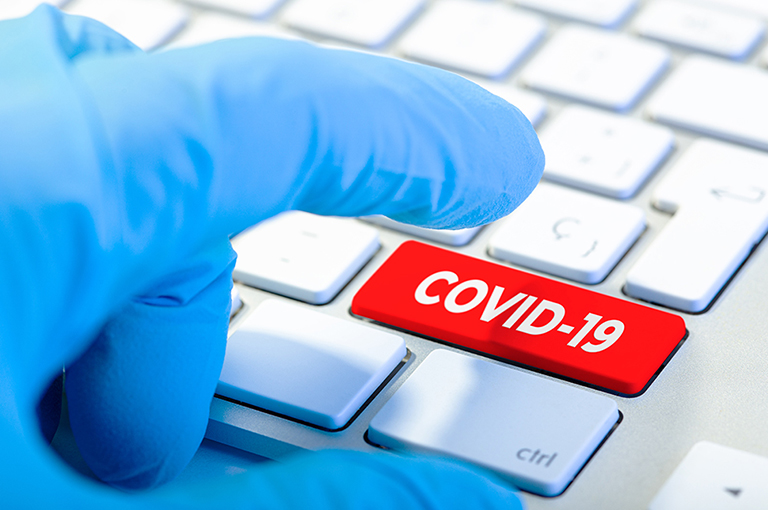Emergency dental care during the pandemic

Why avoid urgent dental care currently?
It is well known that prevention is always the best medicine in health. Avoiding a disease or accident is much more intelligent, safe, cheap and healthy than having to deal with the consequences and consequences of what happened. The current moment brings some more reasons to take care of ourselves.
Dental activity is among the highest risk of contamination among health professions. If the team can become infected and COVID-19 is a disease that can pass asymptomatic or with mild symptoms in many people, allowing them to spread the virus without knowing they are sick, there is always a risk that professionals are working contaminated and spreading the disease by the work environment and for patients, despite all the usual asepsis and sterilization care that work very well for diseases that are less easily transmitted. In other words, going to dental care in a pandemic moment can be considered a risk to transmit or be contaminated by the virus.
Another reason for people to prevent the occurrence of dental emergencies is the possibility of finding difficulties in obtaining care. Of course, some cases will inevitably lead to the need for face-to-face care, even at this time of pandemic, such as cases of acute and intense pain, accidents with major fractures in teeth, bones or soft tissue injuries, among others. If necessary, always seek professional guidance, as only the dentist will be able to assess your condition and determine if there is a need for intervention at this critical moment, or if it is possible to postpone by donating other therapeutic measures.
IN SUMMARY: Contrary to what is recommended under normal conditions, in this moment of isolation decree due to the pandemic, it is interesting to avoid dental care as much as possible, given the risks. Take care and follow the next tips to avoid that you may need urgent care.
COVID-19 Avoiding dental emergencies involving healthy natural teeth
Patients who have healthy natural teeth, that is, totally preserved, without cavities, restorations, prostheses, root canal treatments, accentuated wear, etc., have little risk of needing urgent dental care. They are people up to 45 years old, most of them younger than that. In this group, frequent reasons for the need for urgent dental care are traumatisms (bumps, falls, etc.), food accidents (stones, lumps and the like), loosening of parts of braces or orthodontic retainers, inflammation or acute gingival infections and headache. articular or muscular nature.
What can be done to prevent the need for emergency care at this time?
- Don't take any chances. Avoid running on slippery or wet surfaces. Avoid head dives in shallow pools. Take care of lap babies, who often headbut the caregiver in the face. Avoid playing with children when there is a risk of taking kicks, bumps, falls. If you have one, use sports mouthguards in your physical and sports activities. Avoid extreme and risky sports currently. Take extra care with stairs, rugs and uneven terrain. Do not hold objects with your teeth. Do not use your teeth to open packages, lids, bottles, cans, etc.
- Pay attention to the food you are going to chew. When eating pitted olives or plums, consider the possibility of flaws in the ginning process. Chew more carefully, less force and speed than usual, especially foods with a greater potential to contain harder parts, such as granolas, popcorn, etc. Avoid trying to cut with your teeth foods that you had difficulty cutting with cutlery!
- If you are using an orthodontic appliance or retainer, clean them in detail, but lightly, to avoid detaching parts. If it does, contact your orthodontist for guidance. It is often possible to temporarily overcome the discomfort of a loose part, or a tip of orthodontic wire with the use of specific wax, sold in pharmacies and dentists.
- Maintain excellent oral hygiene. Especially if wisdom teeth are being born, that is, partially exposed, it is very special in these areas. These regions have a greater chance of inflammation due to bacterial accumulation and may develop a condition called pericoronitis. Also take care not to hurt the mucosa near the wisdom teeth with very hard foods. Mouthwashes with antiseptic can help prevent inflammation of gums in regions that are difficult to clean. Ask your dentist for guidance if you feel the need.
- Maintain a healthy diet and control stress factors. If you grind your teeth at night and have a protection plate, don't forget to use it. Take care not to clench your teeth when awake (awake bruxism), in other words, remove your teeth!
- Avoid holding objects with your chin or side of your face, such as telephone sets. Always try to sleep in comfortable and orthopedic positions. Avoid sleeping with your jaw resting on your hand or forearm.
Source: Boletim Informativo Especial COVID 19. Available at: https://www.tjsc.jus.br/web/servidor/coronavirus/-/asset_publisher/K0QPqZlS9lTN/content/atendimento-odontologico-de-urgencia?redirect=%2Fweb%2Fservidor%2Fcoronavirus&inheritRedirect=true. Access on: 06/24/2020.
Image: formatoriginal, by envatoelements
